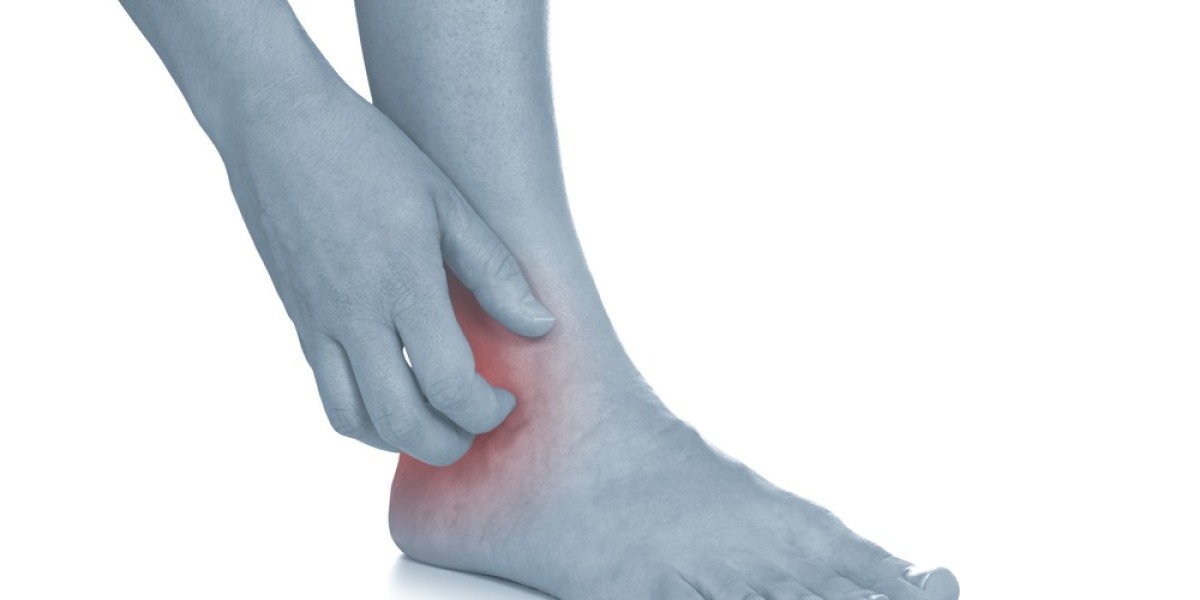Eczema on ankles is a persistent and often distressing condition that affects millions of people worldwide. Characterized by inflammation, itching, and redness, this form of eczema can significantly impact one’s quality of life. Let us delve into the causes, symptoms, and effective treatments available for eczema on ankles. By understanding the latest advancements in dermatology and highlighting the importance of Dermatology Clinical Trials, people can find relief and manage their symptoms more effectively.
Did You Know?
Eczema, or atopic dermatitis, is a persistent skin issue characterized by dryness, itching, and inflammation. When eczema affects the ankles, it can be particularly troublesome due to the constant movement and friction in that area. According to the National Eczema Association, approximately 10% of the population in the United States suffer from some form of eczema.
Prevalence of Eczema on Ankles: A Common Yet Challenging Condition
Eczema on ankles, a form of atopic dermatitis, is a more common concern than you might realize. While the exact prevalence of eczema on this specific body part is not readily available, the overall statistics for atopic dermatitis paint a clear picture.
As mentioned earlier, the National Eczema Association reports that nearly 10% of adults and 20% of children in the United States suffer from eczema, with a considerable number experiencing it on their ankles. This translates to millions of individuals struggling with the condition nationwide. Eczema can manifest on various parts of the body, and the ankles are particularly susceptible due to several factors:
Constant Friction: Ankles experience continuous rubbing from clothing and footwear, which can irritate already compromised skin and exacerbate the itch-scratch cycle.
Sweat Accumulation: The skin on the ankles can trap sweat, creating a moist environment that favors the growth of bacteria and worsens eczema symptoms.
Exposure to Irritants: Ankles are often exposed to irritants like laundry detergents, harsh soaps, or allergens present in fabrics, further triggering flare-ups.
While the specific prevalence of eczema on ankles remains elusive, the high overall numbers of atopic dermatitis sufferers suggest it is a frequent and challenging presentation of the condition.
Causes of Eczema on Ankles
The exact cause of eczema remains unknown, but it is believed to result from a combination of genetic and environmental factors. Common triggers for eczema on ankles include allergens, irritants, stress, and weather changes. Other reasons for eczema on ankles include fungal infections like athlete's foot, jock itch, and yeast infections, as well as skin irritations, infections, and conditions like psoriasis.
Symptoms of Eczema on Ankles
The symptoms of eczema on ankles can vary in severity and may include:
Redness: The skin may become red, inflamed, and itchy due to the allergic reaction or infection.
Dryness: The skin may become dry and flaky, leading to further irritation and discomfort.
Bumps: Small bumps or blisters may appear on the skin, which can be painful and itchy.
Flakiness: The skin may become flaky and scaly, making it difficult to manage the condition.
Dr. Jane Smith, a leading dermatologist, explains,
“Eczema on ankles can be particularly challenging due to the constant pressure and rubbing from footwear, which exacerbates the condition. Proper diagnosis and treatment are essential to managing symptoms and preventing flare-ups.”
Effective Treatment Options for Eczema on Ankles
Treating eczema on ankles involves a multi-faceted approach.
Here are some impactful therapy options:
Topical Treatments
Anti Histamines and Corticosteroids | To alleviate swelling and irritation. They are available in various strengths, depending on the severity of the condition. |
Calcineurin Inhibitors | These are non-steroidal creams that help control inflammation and are suitable for long-term use. |
Moisturizers and Anti-Itch Creams | For generalized itchiness regular application of emollients can help maintain skin hydration and prevent flare-ups. |
Anti-Fungal Creams | For fungal infections like athletes' foot and jock itch, anti-fungal creams can be helpful in managing the itch and associated symptoms. |
Systemic Treatments
For severe cases, systemic treatments might be necessary, which might help control inflammation throughout the body. These include oral corticosteroids, immunosuppressants or even new therapies available through clinical trials.
Innovative Therapies
Recent advancements in dermatology have led to the development of new treatments for eczema on ankles. One such promising approach is the use of biologics. These are targeted therapies that specifically address the immune pathways involved in eczema.
According to a recent Eczema Clinical Study, biologics have shown significant efficacy in reducing symptoms and improving patients’ quality of life.
A researcher involved in the study, states,
“Biologics represent a breakthrough in eczema treatment, offering hope to patients who have not responded to conventional therapies.”
Managing Eczema on Ankles: Practical Tips
While medical treatments are essential, lifestyle modifications can also play a significant role in managing eczema on ankles. Here are some practical tips:
Wear Soft, Breathable Fabrics: Avoid materials that can irritate the skin, such as wool or synthetic fabrics.
Maintain Good Foot Hygiene: Regular washing and moisturizing can help keep the skin on the ankles healthy.
Avoid Triggers: Identify and avoid factors that exacerbate your eczema, such as certain soaps, detergents, or foods.
Stay Hydrated: Drinking enough water helps maintain skin hydration.
Use Mild Soaps and Detergents: Harsh chemicals can strip the skin of its natural oils, leading to dryness and irritation.
Taking Control of Eczema on Ankles: It Starts with Information
Eczema on ankles can be a frustrating and persistent condition. However, with ongoing research and the potential of clinical trials, hope exists. By understanding the causes and effects of eczema, exploring innovative treatment options, and considering participation in a dermatology clinical trial, you can take control of your condition and conquer the itch.








